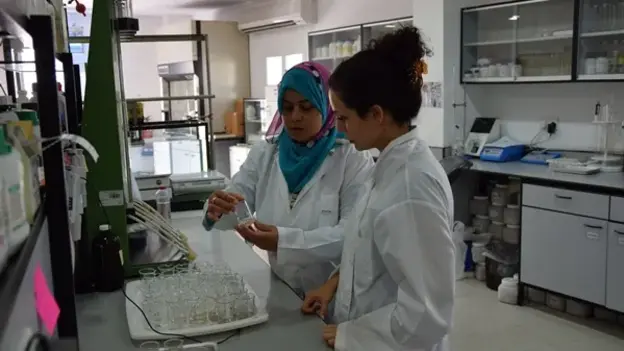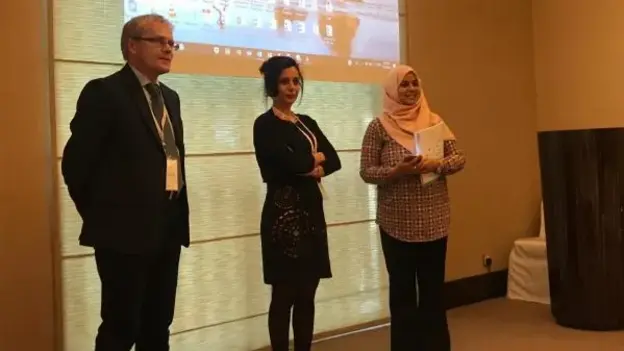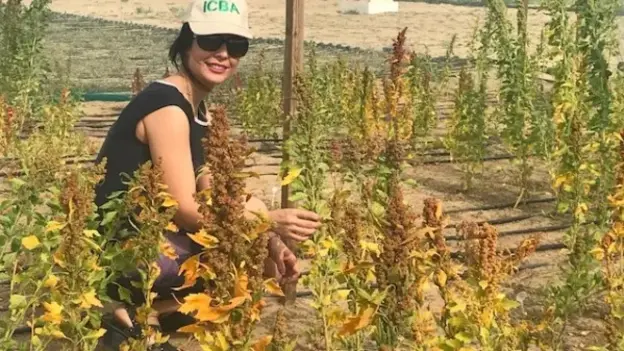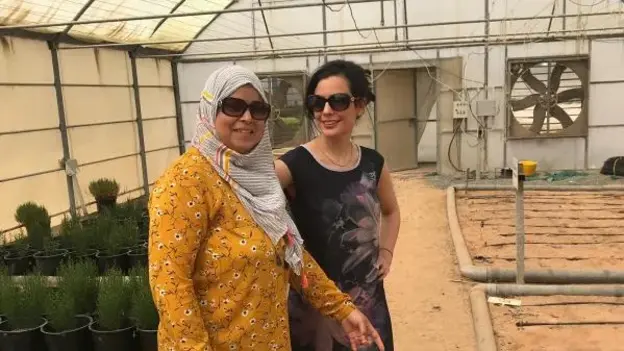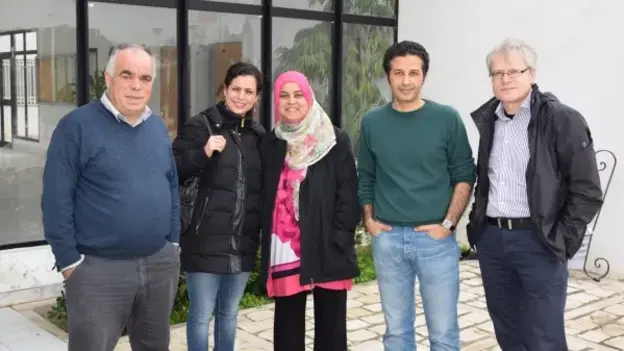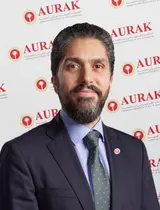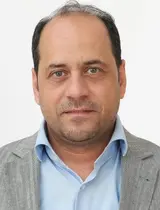Tandem Project
Crop Genomics in the Face of Climate Change
Conference
AGYA member Dr. Salma Balazadeh and Prof. Dr. Bernd Mueller-Roeber comprise the Scientific Organizing Committee for the 9th International Symposium on Plant Senescence, held from 01 - 04 April 2019 in Berlin at the Berlin-Brandenburg Academy of Sciences and Humanities (BBAW). Below, they speak to AGYA about the concept of plant senescence, the symposium and the importance of cultivating North-South-South exchange and research cooperation on crop genomics in the face of climate change. They also speak about their relationship to AGYA and the Academy’s considerable role in forging valuable connections between Arab and German crop scientists and institutions.
WHAT IS YOUR PRIMARY AREA OF RESEARCH AND WHY IS IT IMPORTANT FOR SOCIETY?
Prof. Dr. Mueller-Roeber:
My field of research is plant genomics. What I am particularly interested in is the question of how plants react to their environment and how they manage to grow, reproduce and deliver high yields even under adverse environmental conditions. Especially in the face of climate change, this is a question of outstanding societal importance.
Dr. Balazadeh:
Similarly, my research uses modern techniques of molecular biology and genome research to identify the regulatory components and mechanisms by which plants respond to and cope with environmental stress. Climate change and abiotic stressors like high temperatures, saline soil and lack of water negatively affect crop growth and yield, and thus have an enormous impact on food security and sustainable energy production. The aim is to find ways to develop stress-resilient crops that can achieve stable yields even under stress conditions.
WHAT IS PLANT SENESCENCE AND THE UPCOMING SYMPOSIUM ALL ABOUT?
Dr. Balazadeh:
The International Symposium on Plant Senescence is a biennial symposium that typically gathers more than 100 participants from all over the world to discuss recent advances on different aspects of plant aging, crop senescence and stress biology research. Leaf senescence, which is recognized by leaf yellowing, is a genetically programmed process that occurs during late stages of plant development. During senescence, metabolites and nutrients (mostly nitrogen) are recycled and remobilized from old (senescing) leaves toward newly developing organs, for example flowers and seeds. Therefore, the process is critical for seed formation, crop yield and quality. Leaf senescence is governed by leaf age, however, a wide range of environmental stressors (such as drought, elevated temperature or nitrogen limitation) can have a large impact on the timing and speed of leaf senescence.
Prof. Dr. Mueller-Roeber:
As Dr. Balazadeh explained, plant senescence is a complex physiological process of immense agricultural importance. Throughout senescence, nutrients stored in leaves during early growth are recovered to serve the development of other organs, including – and most importantly - seeds. The control of senescence is thus of great relevance, especially for crops. The molecular and biochemical mechanisms regulating plant senescence are not well enough understood yet. Therefore, every two years, scientists from around the world meet to share their latest research results on the topic. We are very proud that we managed to bring this year's international symposium to Berlin!
WHAT IS AGYA'S ROLE IN THE SYMPOSIUM?
Prof. Dr. Mueller-Roeber:
Before this year, colleagues from Arab countries rarely participated in this international conference, partly due to lack of contacts and insufficient international integration. Thanks to the great support of AGYA, the conference has now gained visibility in the Arab world and scientists from several Arab countries will be able to participate and present their research results this year.
Dr. Balazadeh:
Yes, researchers from Arab countries were underrepresented in all the previous symposiums. Within the framework of the AGYA Project ‘Capacity Building in Modern Crop Science’, my fellow AGYA members – Prof. Dr. Ahmad Sakhrieh and Prof. Dr. Bassam Alameddine – and I teamed up to facilitate the participation of young researchers from Arab countries in this year’s event. They include researchers from Algeria, Saudi Arabia, Sudan, Tunisia and the United Arab Emirates. The aim of this AGYA project is to provide scientists from developing countries in the Arab world with an opportunity to present and discuss their senescence and abiotic stress-related crop research at the conference and raise their international profiles. This networking will help them establish research collaboration with other international participants and strengthen their future involvement in modern crop science.
WHAT KIND OF NORTH-SOUTH-SOUTH RESEARCH COOPERATION ON CROP GENOMICS HAVE YOU BEEN ABLE TO INITIATE SO FAR BETWEEN GERMANY AND THE ARAB WORLD?
Dr. Balazadeh:
Through AGYA, together with some other AGYA members like Dr. Henda Mahmoudi from Dubai and Dr. Ahmed Debez from Tunisia, we have initiated an interdisciplinary research agenda towards the functional analysis of stress (drought) tolerance in economically important crops, such as quinoa, with the aim of developing measures to overcome challenges with respect to climate change. For example, within the framework of the AGYA tandem project ‘TAG Genomics II’, we were able to screen some quinoa varieties in the fields of the International Center for Biosaline Agricutlure (ICBA) in Dubai to assess their responses to water shortage and elevated temperature. Varieties with extreme (strong or weak) tolerance to the stresses have now been selected for a detailed genetic and molecular analysis in our lab in Germany. This will help to identify key components controlling growth and yield under stress conditions. Combining the knowledge and resources available in Germany (for example, modern genomics and biotechnology) and Arab countries (for example, germplasm banks and expertise in field experiments) has led to remarkable success with this project.
Prof. Dr. Mueller-Roeber:
Yes, thanks to AGYA and the mediation by Dr. Balazadeh, first talks with plant scientists from Arab countries were quickly established. We had particularly interesting discussions with colleagues from the United Arab Emirates and Tunisia. As Dr. Balazadeh mentioned, at the moment, we are already jointly conducting field trials with scientists from ICBA in Dubai on the drought tolerance of the increasingly important crop, quinoa. Together with colleagues from ICBA, we have also started to develop a roadmap for future genome-oriented quinoa research. Our cooperation thus far will help us acquire research funding for further projects. In general, I believe studying crop tolerance to harmful environmental conditions, which are increasingly coming to us as a result of climate change, is extremely important. I foresee multiple research projects on this topic emanating in the near future that will increasingly involve research labs from Arab countries, thereby strengthening South-South cooperation.
ONE OF YOU IS AN AGYA MEMBER AND ONE NOT, BUT YOU ARE BOTH PART OF AGYA'S BROADER INTERNATIONAL NETWORK OF EXCELLENT RESEARCHERS AND LEADING INNOVATORS. WHAT DOES ACCESS TO THIS NETWORK MEAN FOR YOUR RESEARCH AND CAREERS?
Dr. Balazadeh:
I joined AGYA in 2014. Since then, AGYA has provided me with many opportunities to further widen my collaborative research networks, raise my scholarly profile internationally and gain practical academic skills by both attending and organizing interdisciplinary workshops, meetings and research stays in other countries. Moreover, the strong research collaboration we’ve been able to establish between my home institute, the Max Planck Institute of Molecular Plant Physiology, and the University of Potsdam (the group of Prof. Mueller-Roeber), as well as with institutions in Arab countries like the ICBA in Dubai and Centre de Biotechnologie de Borj Cedria (CBBC) in Tunisia, is a prime example of how AGYA brings together outstanding researchers and innovators in a dynamic network that far exceeds just the Academy’s current or former members. I was able to make the connection between AGYA and Prof. Mueller-Roeber, who is a world-class scientist and expert in the field of plant stress biology and genetics, because I’ve worked with him for the last 15 years. I did my PhD research in his lab under his supervision, continued my research in his group as a postdoc and, later on, as a research group leader (until November 2016). Several of our AGYA tandem projects, particularly ‘TAG Genomics’ I and II, greatly benefited from our collaboration with him, and vice versa, Prof. Mueller-Roeber has also gained tremendously from making research connections through AGYA in the Arab world.
Prof. Dr. Mueller-Roeber:
I am not a member of AGYA myself, but I have known the Academy since its inception, and I am following it as it develops. In recent years, I have had several opportunities to participate in interdisciplinary AGYA meetings in different countries, including several in the Arab world, with lectures and panel discussions. Before Dr. Balazadeh’s membership in AGYA, I had literally zero collaborations with scientists from the Arab world. Thanks to the numerous contacts Dr. Balazadeh established as an AGYA member, and as a result of our ongoing cooperation, I came into contact with a number of plant scientists from Arab countries. This has already led to interesting project ideas for scientific cooperation, which we now want to discuss further and push forward to secure financial support through grant applications. The scientific network we have been able to develop through AGYA is of great importance for our research – I cannot overstate this.
WHAT ARE YOUR HOPES FOR THE FUTURE OF YOUR FIELD AND HOW CAN FURTHER NORTH-SOUTH-SOUTH COOPERATION HELP MAKE THESE HOPES A REALITY?
Prof. Dr. Mueller-Roeber:
My hope clearly is that progress in crop breeding – which is so much needed to secure the survival of people on our planet under current and future climate change conditions – is not hampered by ideologically motivated road blocks. We must fully utilize modern technologies in future crop breeding, and I hope that the new technologies can be fully embraced for innovative plant breeding in countries that urgently need better crop varieties.
Dr. Balazadeh:
World population is increasing and is expected to reach 9 billion by 2050. Clearly, there is a strong demand for food, feed and fuel and, therefore, research on molecular plant physiology should be directed towards offering solutions to this. I believe that more research should be conducted on economically important – and new - crops. Molecular tools and techniques, including new genome editing techniques, must be developed for use in crops to complement traditional breeding technologies. I believe the exchange of complementary resources, knowledge, ideas and expertise between Arab countries and Europe would significantly help to make these hopes a reality.
You can find more information about Prof. Dr. Bernd Mueller-Roeber here.
- Discipline Involved
- Biology, Chemistry
- Cooperation Partner
- Prof. Dr. Bernd Mueller-Roeber, University of Potsdam
- Venue
- Berlin-Brandenburg Academy of Sciences and Humanities (BBAW), Germany
- Project Title
- North-South-South Exchange and Research Cooperation on Crop Genomics in the Face of Climate Change
- Year
- 2019
- Funding Scheme
- Tandem Project
- Countries Involved
- Germany, Kuwait, United Arab Emirates
